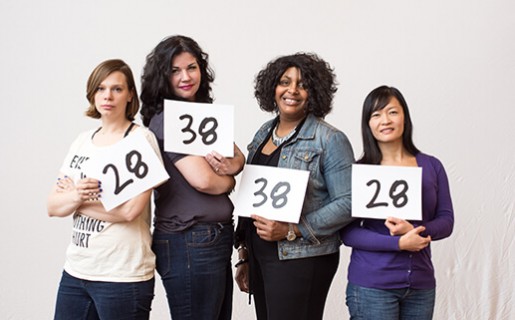Breast Cancer in Young Women

Women who are under 40 years old may feel they are not at risk for breast cancer, but 5% of all cases happen in this group. Diagnosis can be more difficult due to breast tissue density. Also treatment can affect fertility.
Are women under 40 at risk for breast cancer?
Younger women generally do not consider themselves to be at risk for breast cancer. However, breast cancer can strike at any age: 5% of breast cancer cases occur in women under 40 years of age. All women should be aware of their personal risk factors for breast cancer. (A risk factor is a condition or behavior that puts a person at risk for developing a disease.)
There are several factors that put a woman at higher risk for developing breast cancer, including:
What is different about breast cancer in younger women?
Can breast cancer in younger women be prevented?
For women with a family history that is suggestive of a hereditary predisposition for breast cancer, a referral for genetic counseling may be appropriate. Identifying such genetic conditions will allow for a more personalized discussion on screening and preventive treatment options. For example, screening in BRCA mutation carriers begins at the age of 25.Measures that all women can take to reduce breast cancer risk include:
That being said, if breast cancer does develop, early detection and prompt treatment can significantly increase a woman's chances of survival. More than 90% of women whose breast cancer is found in an early stage will survive.
Young women should be counseled on breast awareness and to report any breast changes to their healthcare provider. These changes can include:
Should women under age 40 get mammograms?
In general, screening mammograms are not recommended for women under 40 years old. However, for women with genetic mutations, screening can begin at 25, and in women with a family history of breast cancer, screening is often initiated 10 years earlier than the first affected relative in the family. Breast MRI is often recommended to high-risk women in addition to mammography.
Should you have any concerns about your breasts, please contact Sydney Breast Associates. We are highly experienced and specialise in a range of operative procedures at multiple locations across Sydney. Our surgeons undertake the following procedures with due consideration of each individual patient and their needs. Call us now on (02) 9311 4044 or email us [email protected]



































